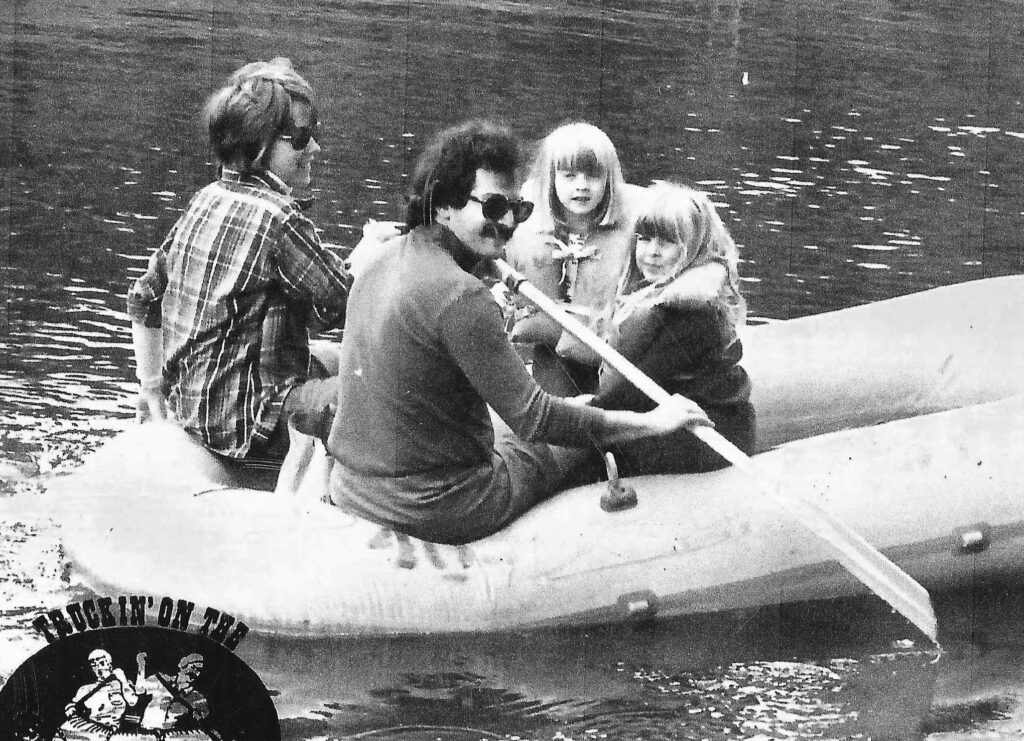
“Why don’t you and your daughter Zoe come over for dinner,” said the voice at the other end of the telephone, continuing, “I live just down the block.” “Sure,” I replied, “see you at 5:30.” So began my 50-year relationship with Norma Jean Marsh Campbell.
Like me, Norma had been married once already, and her daughter and mine, both about four years old, were attending the same preschool in San Francisco. We both lived on Delores Street, separated by 18th Street and The Good Karma Cafe. I’d invited Norma’s daughter Deirdre to Zoe’s birthday party, and Deirdre’s dad had dropped her off and picked her up. I’d never met Norma.
Shortly before 5:30, Zoe and I walked down the block, rang the bell and walked up one flight of stairs. The door was already open and there stood Norma, smiling in big glasses, wearing a white top embroidered with flowers surrounding the collar and long golden-brown hair reaching well below her waist. “Cute,” I thought. I wore a rose-colored turtleneck, blue and white striped bell-bottom pants and Birkenstocks. My full head of curly hair formed what I called a “Hebrew Natural.” Norma was thirty-one and I was twenty-seven. The year was 1975.
We followed her into the apartment past an orange shag carpet in the living room and made our way to the kitchen. “I’m making tacos,” Norma announced, “hope that’s ok.” She’d placed a chunk of meat into a small pot of boiling water; I thought to myself “Hmm, that’s not how I make tacos.” We hadn’t come for the food, though, but to introduce ourselves. The kids went off to play leaving the two of us alone to chat.
The conversation was smooth and easy. Norma was a social worker at the San Mateo Welfare Department; her first marriage was over, as was mine. I had started a production company I called “Video Verité” using a portable video recorder but had plenty of time on my hands. “We should carpool,” I suggested, “since we live so close to each other.” The preschool was a fifteen minute drive. “I’ll think about it,” Norma replied.
The conversation shifted from niceties to something else altogether: ethics and what contributes to a good society. Norma had a Master’s Degree and as a licensed social worker was immersed in such concerns. Comparatively unschooled myself, I relied upon my upbringing, understanding of right and wrong, and the impact of Buddhism on my thinking. It was a wonderful conversation. “She’s not only cute, but has a great mind,” I said to myself. So it began, and so it continued; that conversation went on for fifty years.
In that time, we joined together as a blended family, moved from San Francisco to Piedmont, and from Piedmont to Sonoma. The children grew up, married and had kids of their own. Norma maintained a private practice for forty years, we owned and operated a B&B, I served in public office and started a website development company; we eventually retired but both continued to volunteer our time to the good of the community until Norma died suddenly last May, just shy of her 81st birthday.
Our marriage spanned periods of peace and war, good and bad economies, terrible and terrific politicians; notably, the conversation we began in 1975 about ethics and creating a good society now seems more important than ever.
What a lovely tribute to Norma
Thanks Larry,
This is the weekend of the memorial and, even though I can’t come, I am anticipating it. And feeling her loss – not more painfully but more deeply and consistently. Love to you and everyone in the California family.